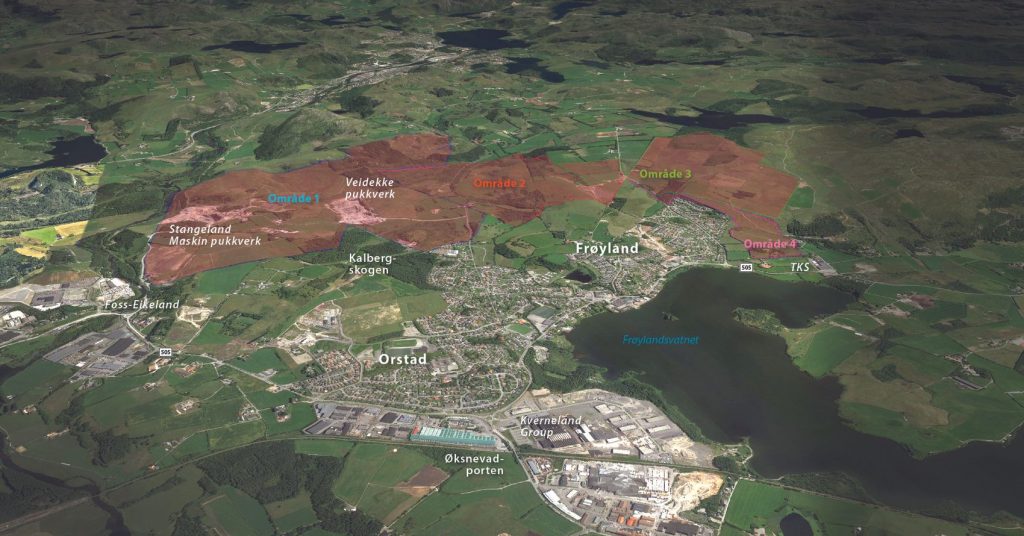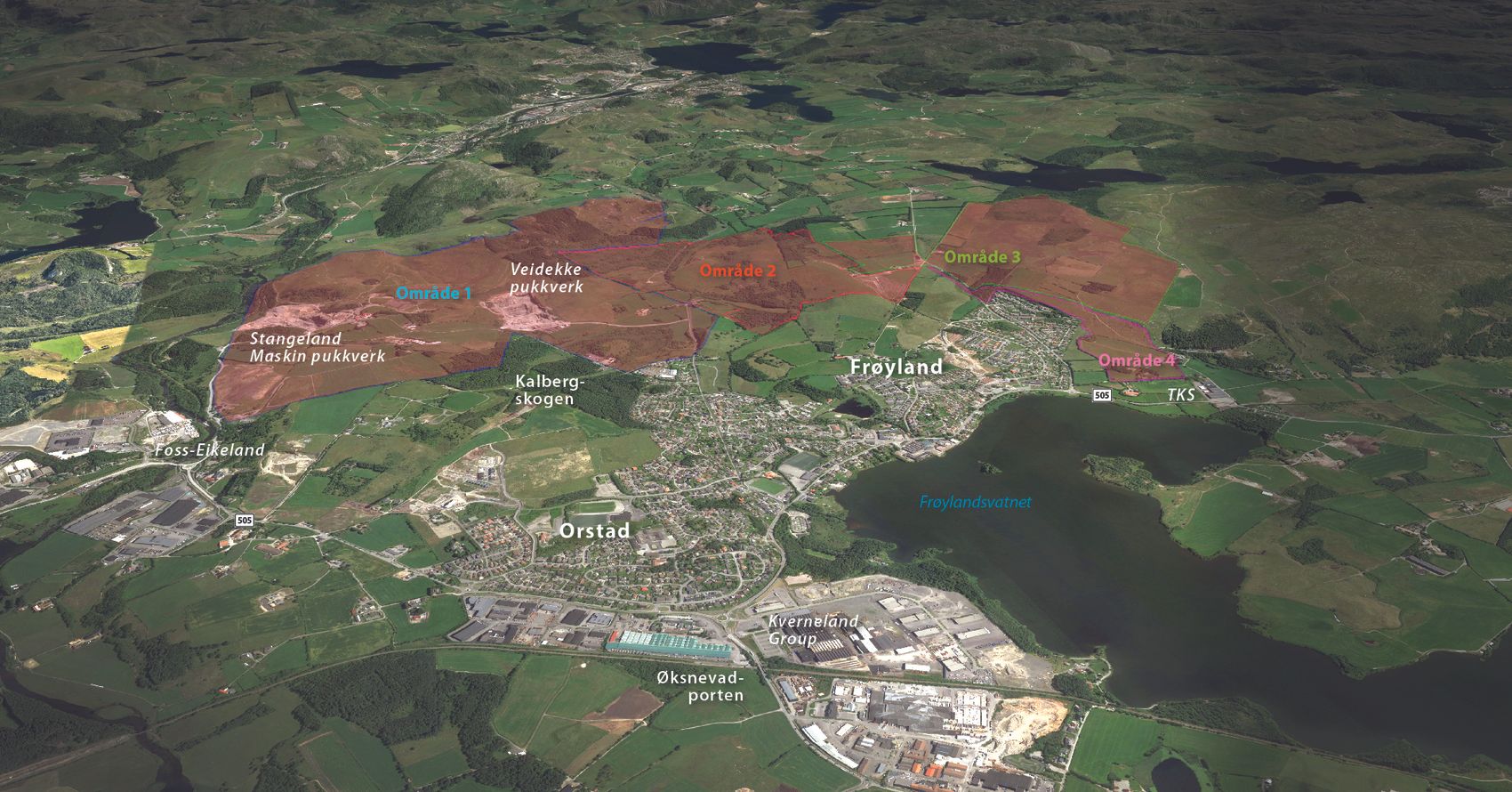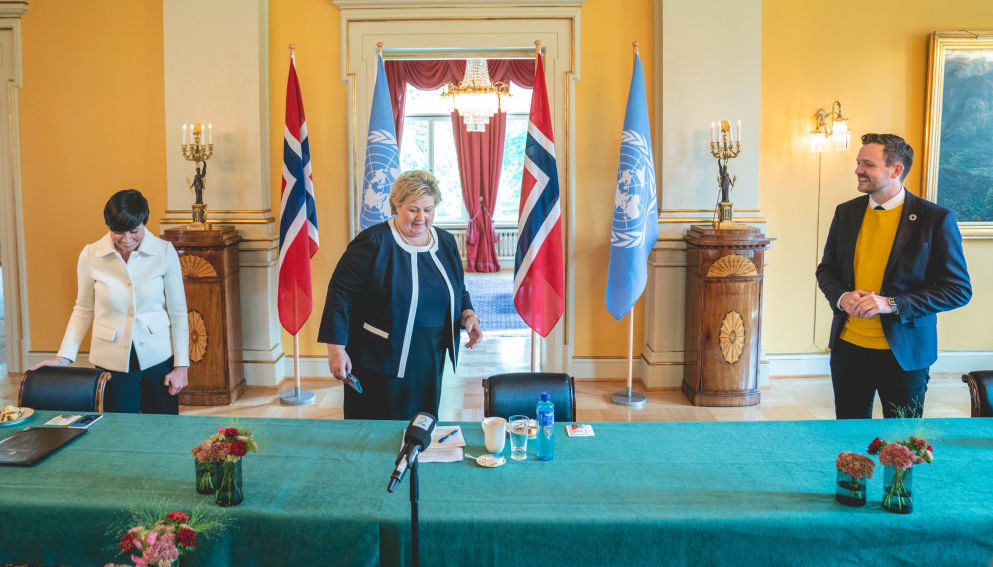Predator capitalism is ill-suited to solve the environmental crisis.


By Ingrid Fiskaa, a municipal board member for SV in Time,
leader Rogaland, and member of the program committee in SV
The green shift is here, and it’s anything but beautiful. In a short time, the green shift has gone from being a way of speaking and some airy visions for the future to become harsh realities. It has gone so fast that language and reality do not match.
If this is green, we must find a new name for the color of the grass and forest. If this is sustainable, future generations are exposed to fraud. Because under the labels “Green” and “Sustainable“, our living area and the basis of life are taken from us, bit by bit. Nature and food-producing soil are laid under asphalt and concrete. And the community’s resources become a source of wealth for the few.
Here at Jæren in South-West Norway, it is enough to stick your nose out the door, to see with your own eyes the changes that are taking place. Wind turbines in all directions are a constant reminder that someone saw their cut to seize both nature and subsidiaries before everyone else understood what was happening. Now the next gang has their foot in the door. This time it is the data center and battery factories that promise a green future, in exchange for cheap power and large, valuable space.
The same pattern is repeated. Powerful actors want quick decisions and threaten to go to other municipalities if they do not get what they want. Now. Democratic processes are bypassed through pre-emption agreements and conversations in back rooms. Inadequate assessments and one-sided case descriptions are set up to give the desired result.
But not everything is the same. The recognition that we are about to be deceived is shared by many. Several questions are asked about the benefits to society and the overall environmental consequences. Residents want to be heard. In my municipality, the data center case has created a historically strong commitment, with a record number of consultation responses to the area plan and high numbers of participants at the online municipal board meetings.
Am I arguing now that the climate crisis is not real, or that we have plenty of time to solve it? To some, it will look like that. The driving forces behind the innovative green shift consist not only of predator capitalists but also of idealists who are eager for a rapid transition from fossil to renewable energy. It is a reasonable wish. The idealists are found both among those who believe that the market is an effective way of solving the climate crisis and among those who are in favor of political governance. The latter argue that we can not wait for capitalism to be replaced until we reduce climate emissions.
We can’t do that either. The problem arises when we do not question the cards others have handed out, but accept the framework for debate and action that is served. And when alleged green measures meet popular opposition, it may be that the measure is bad, and not the people who are wrong. I do not rule out that capitalists may play a positive role in the transition to a truly sustainable economy. But they should not be allowed to formulate policy. A battery factory can be a good idea in one case, and a disaster in another. What the framework for business activities should be, must be up to the community to decide, through open and democratic processes.
Democracy takes time, and some extra impatient climate idealists will think that this is time we do not have. They then look away from the fact that the power relations behind the closed doors are even more skewed than in the open rooms. Countermeasures that are absolutely necessary for a good result will be easier to look away from. If the green shift is not going to make things worse, the cards must be handed out again.





There is 1 comment
Comments are closed.